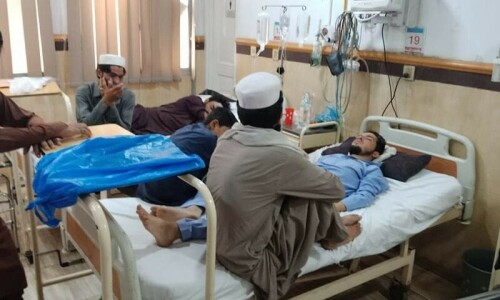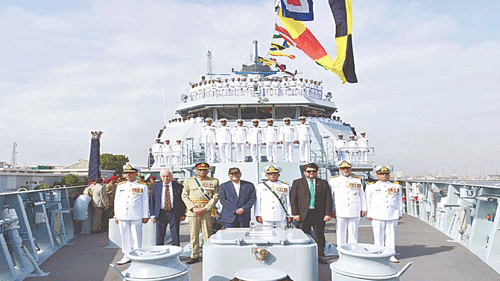ISLAMABAD, Jan 1: Pakistan is likely to include a fixed amount in the natural gas levy, on the pattern of petroleum levy being collected on petroleum products, in addition to the existing general sales tax and gas development surcharge.
Official sources told Dawn that this had been demanded by the World Bank as part of a multi-million dollar structural adjustment loan (SAL). The $300 million loan for the programme has already been released while SAL-II is currently in the negotiation process between the bank and the Pakistan government.
The World Bank has also demanded the review of gas price on quarterly basis instead of biannually. “We have not committed anything as yet,” claimed a senior official of the Ministry of Petroleum confirming that a fixed levy on natural gas and quarterly review were new demands of the World Bank.
The sources said that the proposal was in the initial stage and this had to be clarified as to what should be the mechanism for the new levy and what should be its size. “We have not yet analysed it in detail,” said the official.
The sources said that the bank wanted to introduce a fixed levy on the pattern of formerly petroleum development surcharge (PDS). The PDS is the differential between the wellhead price (producer price) and consumer price collected by the federal government. This amount is then transferred to provinces.
The bank claims that six monthly gas tariff revision does not meet new standard and the real impact does not reach the gas producers.
These sources said that if price revision interval was reduced as it was linked with international oil prices then the investors would be more comfortable to forecast their investments and rate of returns — an incentive for further investments.
The bank has asked Pakistan that it should change the gas pricing and allocation methodology that could empower the gas companies to allocate gas supplies to the gas purchasers of their choice instead of the issue now being decided by the federal government.
This would mean that President of Pakistan would withdraw the powers of the petroleum ministry to allocate gas supplies to consumers from the new discoveries and the gas producers would themselves decide whom they should sell the gas purely on commercial basis.
It was, however, unclear whether the President would continue to guarantee the purchase of new gas discoveries from the producers as provided under the petroleum policy or only powers of allocation would be withdrawn.
The government has to increase gas prices by at least 18 per cent in March this year as part of agreements with the International Monetary Fund (IMF). The increase was required to be put in place in Sept last year but an understanding was reached to postpone it till March 2002 in view of the post-September 11 situation.













































Dear visitor, the comments section is undergoing an overhaul and will return soon.